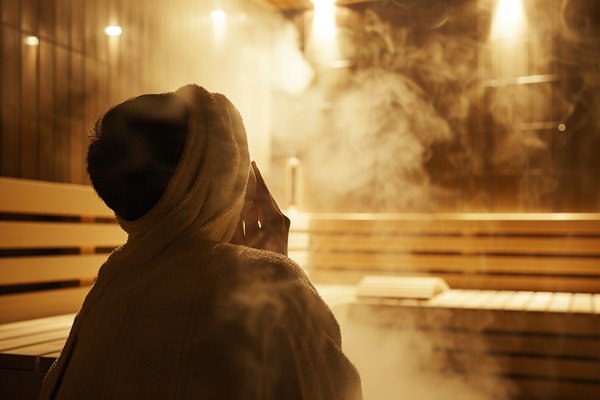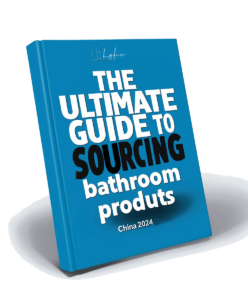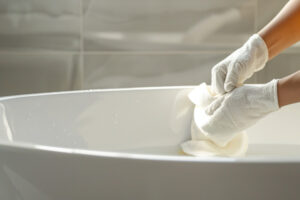
The common cold can leave us feeling drained and uncomfortable. People often turn to alternative remedies, such as sauna therapy1, for relief. Could it truly help?
Saunas might provide relief from cold symptoms by alleviating congestion and promoting relaxation.
Saunas are widely praised for their therapeutic effects, but understanding their actual impact on colds requires deeper exploration.
Does using a sauna help with cold symptoms?

Sauna sessions are often seen as a natural remedy for cold relief. Their warmth might offer soothing effects. Studies suggest2 it might offer short-term comfort but not a cure.
The heat from saunas may ease cold symptoms like congestion and body aches by improving blood circulation.
When you enter a sauna, the body responds to heat by increasing circulation and loosening muscles. This process might temporarily reduce cold symptoms, but it doesn’t address the underlying virus.
The role of heat in cold symptom relief
The heat from saunas can make breathing easier by relaxing airways. Studies suggest it might offer short-term comfort but not a cure. Drinking water during and after your sauna session ensures you stay hydrated, which supports your body during a cold.
| Potential Benefit | Explanation |
|---|---|
| Loosens nasal passages | Makes breathing easier |
| Relaxes tight muscles | Reduces cold-related body aches |
| Promotes relaxation | Reduces stress and aids recovery |
Can a sauna relieve a stuffy nose effectively?

A stuffy nose can make colds unbearable. Saunas might provide temporary relief by opening nasal passages.
Steam and heat in saunas may alleviate nasal congestion by loosening mucus. Adding essential oils3 like eucalyptus can amplify these benefits.
The moist heat helps hydrate your sinuses, encouraging mucus drainage. Adding essential oils like eucalyptus can amplify these benefits.
Moisture’s impact on congestion
Humidity levels in saunas mimic steam inhalation, which is a common cold remedy. This effect might provide comfort but requires consistency. For severe congestion, medical treatments or humidifiers may work better.
| Remedy | Effectiveness |
|---|---|
| Sauna steam | Opens nasal passages temporarily |
| Eucalyptus oil | Adds therapeutic properties |
| Hydration | Supports overall recovery |
How does a sauna affect mucus and congestion?

Saunas might help you breathe easier by reducing mucus buildup and congestion.
Heat and steam from saunas thin mucus, making it easier to expel.
Regular sauna use during colds can aid in clearing sinuses and providing relief, but overuse may lead to dehydration.
Mucus reduction and hydration balance
While heat loosens mucus, it can also dry out your airways if hydration isn’t maintained. Balancing sauna sessions with proper water intake prevents further discomfort.
| Do's | Don’ts |
|---|---|
| Stay hydrated | Avoid prolonged sessions |
| Use essential oils | Skip if dehydrated or unwell |
Does sauna therapy boost your immune system?

Some believe sauna therapy can strengthen immunity. Does science support this?4
Saunas may enhance immune function by increasing white blood cell production.
As your body heats up in a sauna, it mimics a fever, which can activate immune responses. This temporary boost might make you more resilient to infections.
Heat-induced immunity
Sauna sessions can elevate body temperature, leading to mild increases in immune activity. While beneficial, this effect is not long-lasting and should complement, not replace, other health practices.
| Potential Immune Benefits | Caution |
|---|---|
| Increased white blood cells | Avoid overuse if feeling weak |
| Reduced stress | Overheating can cause fatigue |
Can saunas help with seasonal allergies?

Seasonal allergies often overlap with cold-like symptoms. Saunas may provide some relief.
Sauna steam may reduce nasal inflammation, offering mild allergy symptom relief. Steam can help flush allergens from your sinuses, though it doesn’t address the root cause of allergies. Nasal sprays5 or antihistamines might be more effective.
Combining sauna use with allergy management
Pair sauna use with antihistamines or natural remedies for better results. Avoid prolonged sessions if allergies cause respiratory discomfort.
| Complementary Approaches | Sauna Use Tips |
|---|---|
| Antihistamines | Limit session length |
| Nasal sprays | Use moisture-enhancing saunas |
Is there a link between saunas and increased testosterone?

The connection between sauna use and testosterone levels has sparked interest among many health enthusiasts.
Sauna sessions might slightly influence testosterone levels by reducing stress and improving circulation.
While some studies suggest that heat exposure can cause temporary increases in testosterone, the effect varies depending on individual health and lifestyle.
How saunas impact testosterone
The heat from saunas can reduce cortisol, the stress hormone that negatively impacts testosterone production. Improved blood flow and relaxation may also support hormonal balance. However, prolonged or excessive heat exposure might lower testosterone levels, as it can stress the body.
| Potential Effects | Explanation |
|---|---|
| Reduced cortisol | Supports healthier testosterone levels |
| Improved blood circulation | Enhances overall hormone transport |
| Prolonged heat exposure | May reduce testosterone temporarily |
What research suggests
Studies on this topic remain limited, and most evidence is anecdotal. Regular sauna use, combined with a healthy lifestyle, might support hormonal health, but it’s not a guaranteed way to boost testosterone.
| Sauna Use Tips | Considerations |
|---|---|
| Limit session length | Avoid overheating |
| Stay hydrated | Support overall hormone function |
| Combine with a healthy diet | Maximizes potential benefits |
Why might you feel unwell after a sauna session?

Occasionally, saunas can make you feel worse instead of better. Why?
Dehydration, overuse, or high temperatures can cause fatigue or dizziness after sauna use.
These factors strain your body, especially during illness. Listening to your body is key to reaping sauna benefits safely.
Avoiding sauna-related discomfort
Stay hydrated and limit sessions to 15–20 minutes. Avoid saunas if you’re feverish, as this could exacerbate your symptoms.
| Symptoms | Prevention Tips |
|---|---|
| Dizziness | Drink water before and after |
| Fatigue | Avoid excessive heat exposure |
What activities should you avoid after using a sauna?

After a sauna session, certain activities might hinder recovery or worsen your cold.
Avoid heavy exercise, alcohol, or cold exposure after a sauna.
These activities can strain your body or negate the sauna’s benefits.
Post-sauna care
Allow your body to cool down naturally. Gentle stretching and hydration are the best practices to maximize recovery.
| Avoid These Activities | Recommended Actions |
|---|---|
| Intense exercise | Rest and hydrate |
| Alcohol consumption | Choose herbal teas |
Why is it important to wait before showering after a sauna?

Showering immediately after a sauna might seem logical, but waiting can offer better results.
Allowing your body to cool gradually maintains the sauna’s benefits.
A cold shower immediately after could shock your system, negating the relaxation and circulation benefits.
Cooling down properly
Spend 5–10 minutes cooling off after a sauna session before showering. This transition ensures your body reaps the full benefits.
| Do's | Don’ts |
|---|---|
| Wait before showering | Avoid sudden temperature changes |
| Rehydrate | Skip cooling-off time |
Conclusion
Sauna therapy offers numerous benefits for cold relief, from easing congestion to promoting relaxation. While saunas can support recovery, they are not a cure. Use them as part of a balanced approach that includes hydration and rest. Avoid overuse to ensure you stay comfortable and reap the maximum benefits.
-
Learn the benefits of sauna therapy for cold relief. ↩
-
Explore research findings on saunas and their effects on cold symptoms. ↩
-
Find out how essential oils like eucalyptus improve sinus relief. ↩
-
Discover how saunas might enhance immune response and fight illness. ↩
-
Learn how nasal sprays alleviate allergy-related congestion. ↩










